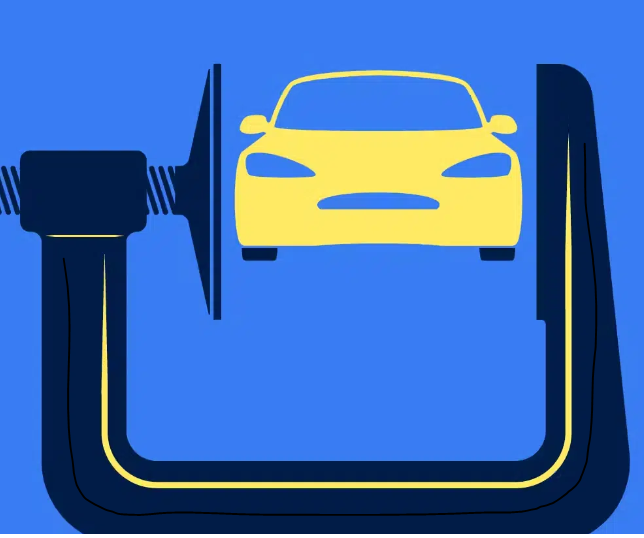When financing a vehicle, the interest rate on your car loan plays a crucial role in determining how much you will ultimately pay for your car. A small difference in interest rates can significantly affect your monthly payments and the total cost of the loan over time. Whether you’re purchasing a new car, used car, or refinancing an existing loan, understanding how car loan interest rates work is essential for making informed financial decisions.
The Impact of Interest Rates on Monthly Car Loan Payments
Your monthly car payment is one of the most important aspects of any car loan. The interest rate directly affects how much you pay each month, with higher interest rates leading to higher monthly payments. This is because the interest charged on the loan is calculated as a percentage of the loan balance, and a higher rate means more money will be added to your monthly payments.
For example, let’s say you’re financing a car with a loan amount of $20,000 over a period of 5 years (60 months). If your interest rate is 4%, your monthly payment will be lower than if the interest rate is 7%, even though the loan amount and term remain the same. This is due to the fact that the lender will charge you more interest on the total amount you owe with the higher rate, thus increasing the monthly payment.
Example Scenario:
- Loan Amount: $20,000
- Loan Term: 60 months (5 years)
- Interest Rate 1: 4% → Monthly Payment: $368.33
- Interest Rate 2: 7% → Monthly Payment: $396.02
As you can see, a 3% difference in interest rates results in an additional $27.69 per month in payments. Over the course of the loan, this can add up to a significant difference in your budget, making it essential to secure the best possible interest rate for your car loan.
How Interest Rates Affect the Total Loan Cost
In addition to affecting monthly payments, the interest rate also determines the total amount you will pay over the life of the loan. A higher interest rate means that you will pay more interest over time, which increases the total cost of the vehicle. This is particularly important for long-term loans, as the effect of compounding interest can significantly increase the amount you pay for the car.
To illustrate this, let’s use the same $20,000 loan example but compare the total amount paid over the full 5-year loan period with different interest rates:
- Loan Amount: $20,000
- Loan Term: 60 months (5 years)
Interest Rate 1: 4%
- Monthly Payment: $368.33
- Total Loan Repayment: $368.33 * 60 months = $22,099.80
- Total Interest Paid: $22,099.80 – $20,000 = $2,099.80
Interest Rate 2: 7%
- Monthly Payment: $396.02
- Total Loan Repayment: $396.02 * 60 months = $23,761.20
- Total Interest Paid: $23,761.20 – $20,000 = $3,761.20
In this example, a 3% increase in the interest rate results in an extra $1,661.40 paid in interest over the life of the loan. This can significantly impact your overall budget and is one of the main reasons why securing the best interest rate is so important when financing a car.
The Role of Loan Terms in Interest Rate Impact
The term of your car loan also plays a role in determining the impact of interest rates on your monthly payments and the total loan cost. Shorter loan terms, such as 36 months or 48 months, tend to have lower interest rates because the lender’s risk is reduced as the loan is repaid more quickly. However, while these loans offer lower interest rates, the monthly payments will be higher due to the shorter repayment period.
On the other hand, longer loan terms, such as 60 months or 72 months, typically come with higher interest rates, but the lower monthly payments make them more affordable on a monthly basis. However, while these loans are easier to manage on a monthly basis, you end up paying more in interest over the life of the loan.
Example Scenario – 36-Month Loan Term:
- Loan Amount: $20,000
- Interest Rate: 7%
- Monthly Payment: $616.20 (for 36 months)
- Total Loan Repayment: $616.20 * 36 = $22,171.20
- Total Interest Paid: $22,171.20 – $20,000 = $2,171.20
Example Scenario – 72-Month Loan Term:
- Loan Amount: $20,000
- Interest Rate: 7%
- Monthly Payment: $332.01 (for 72 months)
- Total Loan Repayment: $332.01 * 72 = $23,904.72
- Total Interest Paid: $23,904.72 – $20,000 = $3,904.72
As you can see, choosing a longer loan term results in lower monthly payments but a higher total loan cost. In this case, the total interest paid for a 72-month loan is significantly higher than for a 36-month loan, even though both loans have the same interest rate.
How to Minimize the Impact of Car Loan Interest Rates
While interest rates can have a substantial impact on your monthly payments and the total cost of your car loan, there are several strategies you can use to minimize their effect:
1. Shop Around for the Best Rates: Lenders offer different rates based on your credit score, loan amount, and other factors. It’s important to compare offers from banks, credit unions, and online lenders to find the best deal.
2. Improve Your Credit Score: A higher credit score generally means a lower interest rate. Before applying for a car loan, take the time to improve your credit score by paying off debts, making on-time payments, and correcting any errors on your credit report.
3. Make a Larger Down Payment: A larger down payment reduces the amount you need to borrow, which can lower both your monthly payments and the total interest paid over the life of the loan.
4. Consider Shorter Loan Terms: Although shorter loan terms often come with higher monthly payments, they also come with lower interest rates. If you can afford the higher monthly payments, this option may save you money in the long run.
Conclusion
Car loan interest rates play a pivotal role in determining both your monthly payments and the total cost of your loan. Even a small difference in the interest rate can lead to significant changes in the overall financial impact of your car loan. By understanding how interest rates work, shopping around for the best rate, and considering factors like loan term and down payment, you can minimize the financial burden of your car loan and make a more informed decision. Whether you’re financing a new or used car, securing the best possible interest rate is key to making your car purchase as affordable as possible.


